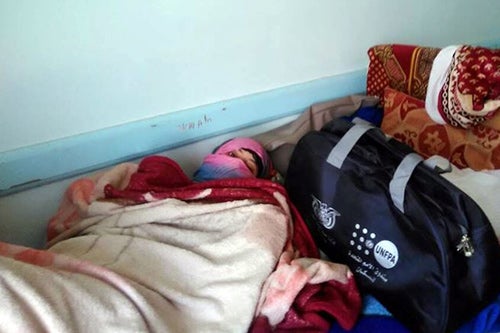
Obstetric fistula is one of the most serious and tragic injuries that can occur during childbirth. The condition "is silently robbing millions of women and girls of their health, hope and dignity," said UNFPA Executive Director Dr. Natalia Kanem in her statement marking the occasion.
Yet the condition is almost entirely preventable. Its persistence is a sign of global inequality and an indication that health systems are failing to protect the health and human rights of the poorest and most vulnerable women and girls. Those without access to modern maternal health services are more likely to suffer from obstetric fistula, for example. And girls who are subjected to child marriage and adolescent pregnancy are also more vulnerable, since the condition is more likely to afflict those who become pregnant while still physically immature.
The United Nations has observed the International Day to End Obstetric Fistula since 2013. The day, 23 May, is meant to raise awareness of this issue and mobilize support around the globe. The theme of this year's International Day is "Leaving no one behind: Let us commit to ending fisula now!"
A screening of the film "The Ambassador," about empowering women living with fistula in Ethiopia, will be held at United Nations Headquarters on 23 May from 6:30 to 8:30 p.m. The event, held by UNFPA, the Campaign to End Fistula and Healing Hands of Joy, will include a question-and-answer session featuring the award-winning filmmakers and UNFPA technical experts. Diplomatic missions based in New York are invited to attend. RSVP required by 15 May.

